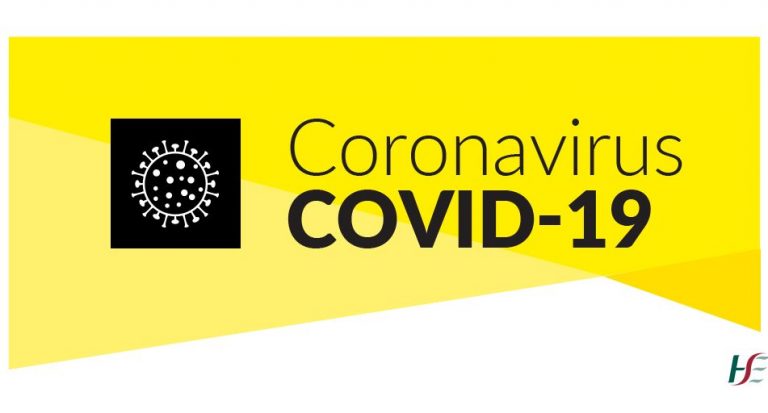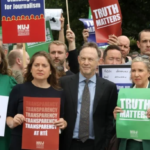Richard Boyd Barrett TD and Bríd Smith TD issued a statement today a head of the Dáil debate on Covid 19 outlining measures which PBP feel must be taken in order to address the Caronavirus threat.
PBP proposed that today’s debate take place at last weeks Dáil Business Committee.
The Coronavirus Disease, Covid-19, has reached Ireland but we should not panic. The virus can spread quickly but it causes only a mild illness in 4 out of 5 cases and its spread can be limited by handwashing and isolating victims and contacts until the illness passes. Particularly vulnerable are groups such as older people and those with underlying health conditions who will require extra caution and care in the event of infection. With good public health contact tracing and isolation of those infected and their contacts the spread of disease could be greatly contained. In China not even one in ten thousand people has been infected so far and only just over one in a thousand in the most affected area, Hubei Province and its capital city, Wuhan.
However, there are major concerns with the ability of the Irish health system to match these levels of containment or to cope if there is significant onward community transmission here. We already know that far too many people are on trolleys and that at least 5,000 extra beds are needed to deal with normal health issues in Ireland. Ireland has the worst hospital bed occupancy rates in the EU.
Even the government policy Sláintecare advocated 2,500 beds in 2017 but Fine Gael has not provided even one of these beds since. The Chinese city of Wuhan built two hospitals with 2,500 beds in just ten days. If even one in a thousand people in Ireland were infected, 1,000 hospital beds would be needed including more than 100 intensive care beds which would stretch capacity but the health service would cope by cancelling elective admissions. If one in a hundred or more were infected, 10,000 beds and more than 1,000 ICU beds would be required and the health service would not have the capacity to offer hospital treatment to the sickest patients. The swine flu pandemic infected 20% of the world population in 2009.
We therefore need to start thinking of emergency measures now – rather than waiting.
Here are some measures that PBP believe are urgently necessary:
- The Department of Health must procure adequate quantities of Personal Protective Equipment (PPE) eg Facemasks: N95 or higher standard and Eye Protection (goggles or face shields). Where practicable the government can resource medical equipment and/or clothing factories to produce equipment to meet any predicted shortfall.
- More frontline healthcare staff must be recruited immediately to the HSE.
- The Department of Health needs to create more high-standard isolation units immediately.
- There is already a shortage of ICU beds in Ireland due to the scandalous cutbacks imposed during the austerity years. New ICU beds should be identified and staffed as a matter of urgency.
- The crisis prone nature of our health system means that emergency action must now be taken. Two measures are required: The first is the full integration of the private health care system into the public system. This needs to be combined with a state assurance that no elements of a two-tier system will operate while the country is threatened with this virus. Secondly, the government should source the material and means to set up field hospitals in the event of Covid 19 spreading further.
- In the medium to long run, antiviral medications and a vaccine will be needed to combat the virus. However, under current Intellectual Property rules, these may be held by private for-profit corporations and not made publicly available.The state should direct researchers in industry and public institutions with expertise in viral infection and immunity to reorient work to help international efforts to develop antiviral drugs, improved diagnostics and a vaccine. It should also establish special funding streams for research onSARs-CoV2/Covid-19. It should declare publicly that it will not abide by any ‘proprietary rights’ when it comes to making generic versions of such vaccines as soon as possible as allowed for under World Trade Organisation rules in national emergencies.
- Severe penalties against any company who attempts to profiteer from this crisis by pushing up prices for items such as sanitisers.
- The coronavirus needs to be tackled on an all-Ireland basis. An emergency cross border committee involving health ministers needs to be established to discuss cross border cooperation and sharing of resources to tackle the infection.
- The proposal that individuals self-isolate is medically sound and we fully support it. However, we need to recognize that there are serious deficiencies in Ireland’s sick pay schemes that will be exacerbated further with this crisis. Essentially, there is no provision in Irish law to force employers to have a sick pay scheme. As a result, workers, particularly those in precarious employment, may have no financial protection during the course of self-isolation. This, tragically, could encourage many instead to turn up for work – because without wages they may be without food for their family.
If your job doesn’t have a sick pay scheme you will be totally reliant on state illness benefit. No payment is made for the first 6 days of illness of this (thanks to Labour Party Minister Joan Burton who increased it from the first 3 days in 2013), which are known as waiting days. (Note that Sunday is not counted as a waiting day.)There is also an eligibility criterion, your payment is based on your fulfilling these and means you must have a certain number of contributions (paid PRSI contributions) in the previous period or years. (See below.)
As an immediate response to the Covid 19 crisis, there must be
- An end to the waiting days period; immediate payment of state illness benefit
- This should cover all workers who are diagnosed; self-quarantined; or need to stay home with children or to nurse close family or friends in order to keep hospital beds open for the sickest patients.
- Quarantine should be based on a self-certification system as workers clearly cannot get a medical cert in circumstances of isolation or nursing sick relatives. Once they are registered as confined – which few would want to do – they should be eligible for payment and subject to the same regulations on making claims as any social welfare recipients.
- The payments should rise to 100% of previous wages. The current maximum under illness benefit is 203 Euro, with another 134 for an adult dependent. This is wholly inadequate.
- A suspension of the criteria (previous contributions history) during the crisis.
The payments should be paid out of the social insurance fund, with an emergency tax on all employers and an additional contribution from employers who do not operate a sick scheme for their workers.












